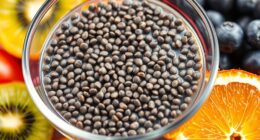Come with us on an eye-opening exploration to uncover the hidden dangers lurking in the realm of superfood seeds.
In this article, we will shed light on the potential risks and adverse effects associated with consuming these seemingly innocent powerhouses of nutrition.
From allergic reactions and digestive issues to possible interactions with medications, we will uncover the hazards that may arise from indulging in these trendy health foods.
So, fasten your seatbelts and prepare to embark on a journey to safeguard your well-being.

Key Takeaways
- Allergies and sensitivities to superfood seeds can range from mild to severe, with symptoms including itching, hives, swelling, and difficulty breathing. Cross-reactivity with other seeds may trigger allergic responses.
- Superfood seeds can cause digestive issues such as bloating, constipation, diarrhea, and gas. This is due to their ability to expand in contact with liquid and their high soluble fiber content.
- Consuming excessive amounts of superfood seeds can lead to nutrient imbalances, particularly in omega-6 fatty acids, which may disrupt the omega-3 to omega-6 ratio.
- Superfood seeds can be at risk of contamination, including bacteria, mold, and heavy metals. Proper storage and purchasing from reputable sources can help minimize this risk.
Allergic Reactions to Chia Seeds
We have discovered that some individuals may experience allergic reactions when consuming chia seeds. These reactions can range from mild to severe and may include symptoms such as itching, hives, swelling, and difficulty breathing.
One potential cause of these allergic reactions is cross-reactivity with other seeds, such as sesame or mustard seeds. Chia seeds contain proteins that are similar to those found in these other seeds, which can trigger an allergic response in susceptible individuals.
If you suspect that you may have an allergy to chia seeds, it’s important to seek medical advice for proper diagnosis and management. Avoiding chia seeds and other cross-reactive seeds is crucial in preventing allergic reactions.
Additionally, carrying an epinephrine auto-injector and educating yourself about food labels can help manage chia seed allergies and prevent severe reactions.

Digestive Issues Caused by Chia Seeds
Are digestive issues caused by chia seeds common? While chia seeds are known for their numerous health benefits, they can also cause digestive issues in some individuals. Here are four potential digestive issues that can arise from consuming chia seeds:
-
Bloating: Chia seeds expand when they come into contact with liquid, which can lead to feelings of bloating and discomfort.
-
Constipation: Chia seeds are high in soluble fiber, which can absorb water and bulk up stools. However, if not consumed with enough fluid, they can contribute to constipation.
-
Diarrhea: On the other hand, chia seeds can also have a laxative effect when consumed in excess. This can lead to loose stools and diarrhea.

-
Gas and stomach cramps: Chia seeds contain oligosaccharides, a type of carbohydrate that can be difficult to digest for some individuals. This can result in gas and stomach cramps.
While these digestive issues aren’t common for everyone, it’s important to listen to your body and adjust your chia seed consumption accordingly. If you experience persistent digestive problems, it’s recommended to consult a healthcare professional.
Potential Interactions With Medications
Potential Interactions With Medications can occur when consuming superfood seeds. It’s important to be aware of the potential drug interactions and take safety precautions to avoid any adverse effects.
Superfood seeds, although packed with nutrients, can interact with certain medications and affect their efficacy. For example, chia seeds contain omega-3 fatty acids, which have blood-thinning properties. This can lead to potential interactions with anticoagulant medications, such as warfarin, increasing the risk of bleeding.
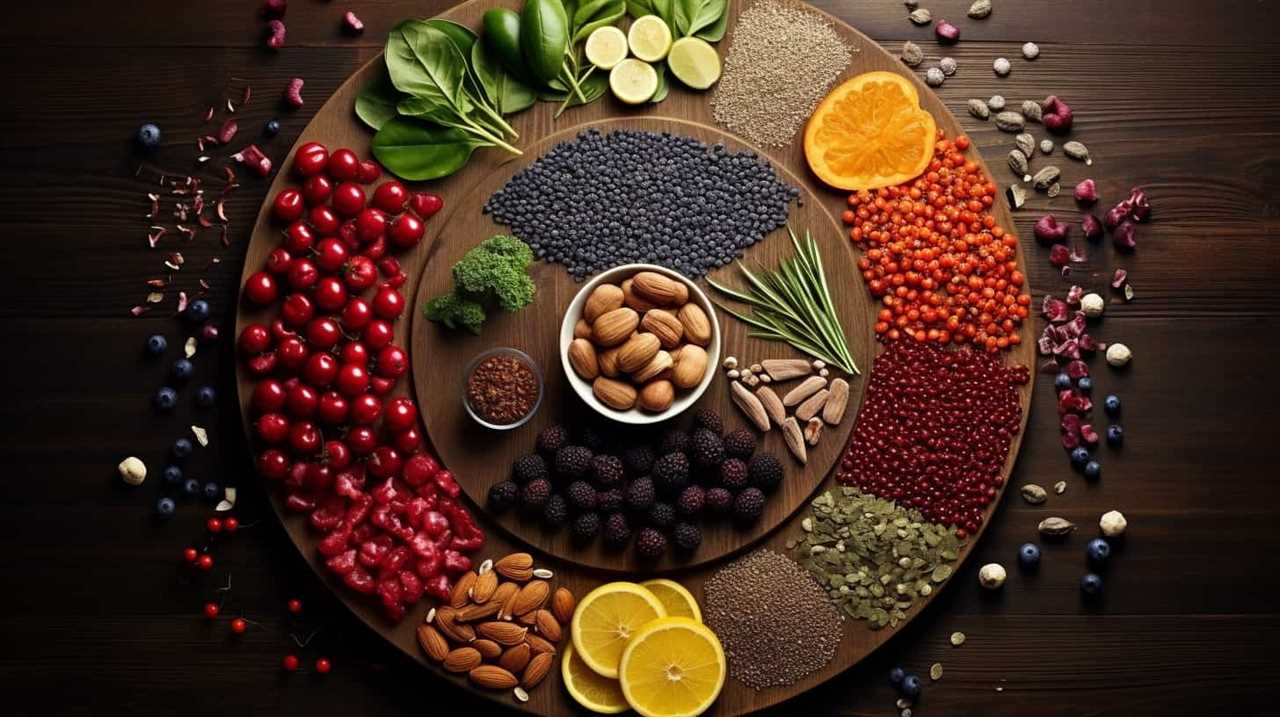
Additionally, the high fiber content in seeds like flaxseed and hemp seed can interfere with the absorption of certain medications, reducing their effectiveness.
To ensure safety, individuals taking medications should consult their healthcare provider before incorporating superfood seeds into their diet. It’s essential to discuss any potential interactions and determine the appropriate dosage and timing to avoid any negative consequences.
Choking Hazards of Chia Seeds
Chia seeds pose a choking hazard due to their ability to absorb liquid and expand in size when consumed. To prevent choking when consuming chia seeds, consider the following tips:
- Soak chia seeds: Pre-soaking chia seeds in water or other liquids can help soften them and reduce the risk of choking.
- Mix with liquids: Instead of consuming chia seeds dry, mix them into smoothies, yogurt, or pudding to ensure they’re adequately moistened before consumption.
- Grind chia seeds: Grinding chia seeds into a fine powder can make them easier to swallow, reducing the risk of choking.
- Be mindful of portion sizes: While chia seeds offer numerous health benefits, it’s important to consume them in moderation to avoid overwhelming the digestive system.
Exploring alternative ways to incorporate chia seeds into your diet while minimizing the risk of choking can be a great approach.
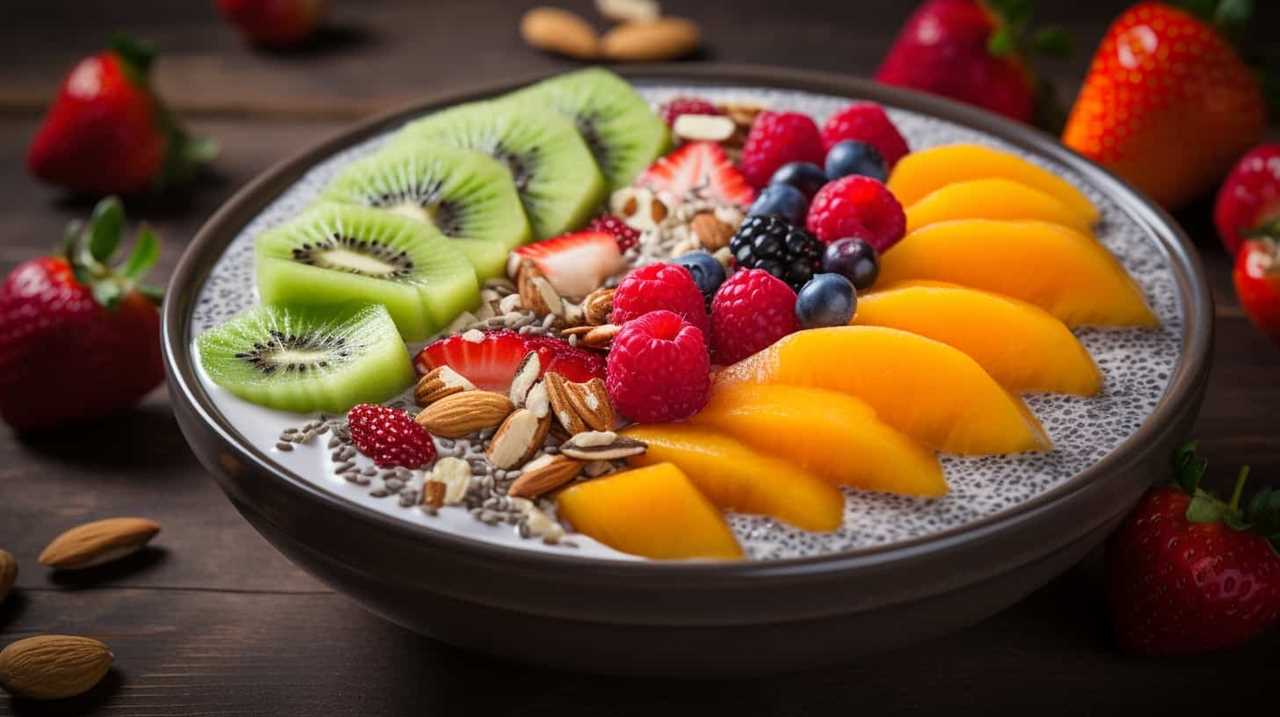
Transitioning into the next section, let’s now delve into the health risks associated with excessive chia seed consumption.
Health Risks Associated With Excessive Chia Seed Consumption
Continuing our exploration of the dangers of consuming superfood seeds, excessive consumption of chia seeds can pose significant health risks.
While chia seeds are known for their numerous nutritional benefits, such as being rich in omega-3 fatty acids, fiber, and antioxidants, it’s important to remember that moderation is key.
The recommended daily intake of chia seeds is about 1 to 2 tablespoons. Consuming more than this amount on a regular basis can lead to adverse effects.

One of the main health risks associated with excessive chia seed consumption is gastrointestinal issues, such as bloating, gas, and diarrhea. Additionally, chia seeds are high in calories, so consuming large quantities can contribute to weight gain.
It’s crucial to listen to your body and consume chia seeds in moderation to avoid these potential health risks.
Frequently Asked Questions
Are There Any Other Seeds That Can Cause Allergic Reactions Similar to Chia Seeds?
Other seeds, such as flax and hemp, can also cause allergic reactions similar to chia seeds. It’s important to be aware of potential allergens in superfood seeds and consult a healthcare professional if experiencing symptoms.
Can Consuming Chia Seeds Lead to Long-Term Digestive Issues?
Yes, consuming chia seeds can lead to long-term digestive issues. While they have nutritional benefits, excessive intake can cause bloating, gas, and constipation. Moderation is key for maintaining digestive health.
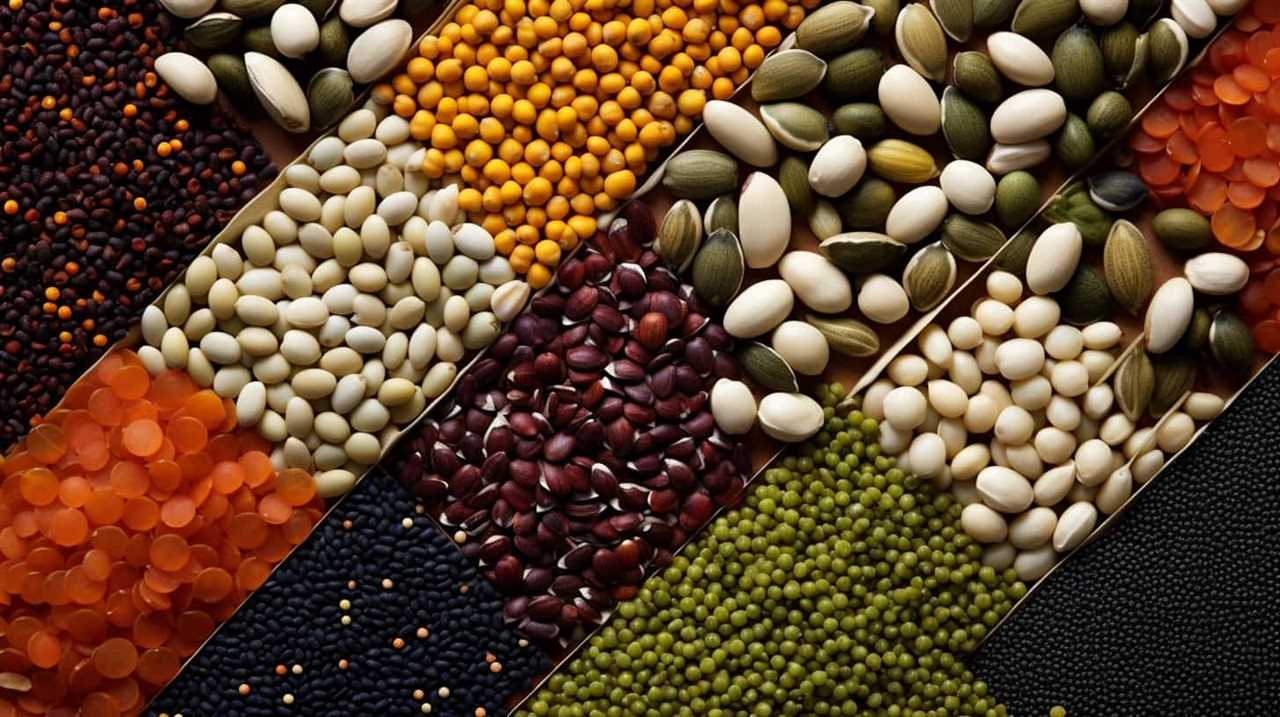
What Are Some Common Medications That May Interact Negatively With Chia Seeds?
Medication interactions with chia seeds can be a concern. Some common medications like blood thinners and blood pressure medications may interact negatively. Allergic reactions to chia seeds are rare but possible.
Are There Any Recommended Guidelines for Consuming Chia Seeds to Minimize the Choking Hazards?
Recommended guidelines for consuming chia seeds to minimize choking hazards include soaking them in liquid before consuming, adding them to moist foods, and always drinking plenty of water.
Apart From Excessive Consumption, Are There Any Other Health Risks Associated With Consuming Chia Seeds?
Apart from excessive consumption, chia seeds pose no significant health risks. While they can aid in weight loss due to their high fiber content, potential side effects such as bloating or digestive discomfort may occur in some individuals.
Conclusion
In conclusion, while chia seeds have gained popularity as a superfood, it’s important to be aware of the potential hidden dangers they may pose.
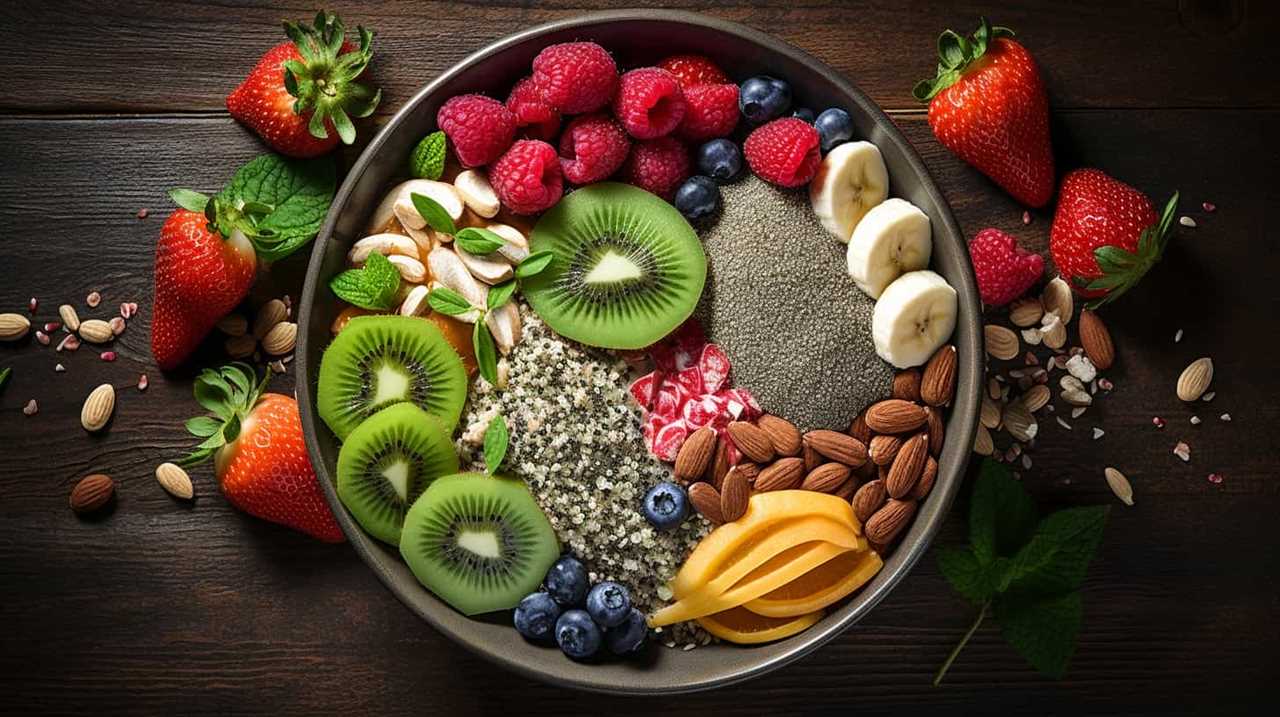
Allergic reactions, digestive issues, and potential interactions with medications are all factors to consider. Additionally, the choking hazards associated with consuming dry chia seeds shouldn’t be overlooked.
It’s crucial to consume chia seeds in moderation and be mindful of any adverse effects. As the saying goes, ‘everything in moderation’ holds true even for these nutritious seeds.








